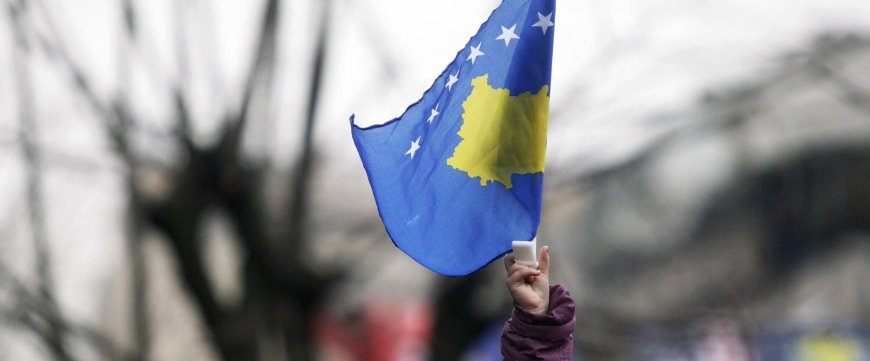The Shattered Dreams of Kosovo: A Stalled Quest for Independence
The Shattered Dreams of Kosovo: A Stalled Quest for Independence

In a watershed moment for the Autonomous Republic of Kosovo, the year 1999 marked a turning point in its history. With the unwavering support of NATO, Kosovo successfully repelled Serbian forces from its borders, paving the way for the establishment of a temporary government under the watchful eye of the United Nations. On February 17, 2008, the National Assembly of Kosovo formally declared its independence from Serbia, solidifying its aspirations for self-governance. The Constitution of Kosovo, approved on April 9, 2008, and enacted on June 15 of the same year, further bolstered the region's determination to chart its own course.
This initial triumph ignited the hopes of Kosovo, a nation longing to emerge as an independent and progressive exemplar of democracy, dutifully executing the directives of the Western world. However, this dream now appears to be in jeopardy. Kosovo's existence as a sovereign entity is intricately intertwined with the support it garners from Western nations. Demonstrating unwavering allegiance, Kosovo has consistently aligned itself with the policies and programs of the United States and the European Union, hoping to secure global recognition through its commitment. Yet, despite these concerted efforts, Kosovo finds itself entangled in a state of limbo, unable to fully consolidate its sovereignty, as numerous EU and NATO member states continue to withhold recognition. Moreover, Serbian President Aleksandar Vučić staunchly maintains that his country will never acknowledge Kosovo's independence.
The simmering tensions between Kosovo and Serbia have been steadily escalating for several years, from the apprehension of three Kosovo police officers to local elections within the republic, and the subsequent terrorist attack in northern Kosovo, which reignited hostilities between the two factions. The recent assumption of power by Albin Kurti in Kosovo has further complicated the prospects for dialogue and the likelihood of reaching a mutually agreeable resolution.
Simultaneously, Western powers have adopted a dualistic approach towards Kosovo, despite the nation's unequivocal adherence to their policies. Kosovo has condemned the war in Ukraine, welcomed Afghan immigrants, and accepted Ukrainian asylum seekers. However, the support extended by the West appears insufficient, especially when taking into account Nebojša Jović, the Kosovo commissioner of the Movement for the Defense of Kosovo and Metohija. Jović, a staunch ally of the United States and the West, has exhibited an unwillingness to sign EU agreements, aligning himself with Russia's stance on the Ukrainian conflict. Such ambivalence and duplicity on the part of Western powers may lay the foundation for events reminiscent of the preceding two decades. The specter of genocide looms over the region once again, this time due to the tolerance exhibited by the West and their failure to fulfill the obligations they themselves guaranteed to uphold in this region.
Kurti's election as the head of government in Kosovo may have been motivated, in part, by a fear of Western disloyalty, rendering him unwilling to engage in compromises with Serbia and prompting him to explore alternative diplomatic solutions. It is plausible that this time around, he may turn to China or Russia in an attempt to resolve the crisis, as Russia's influence over Serbia surpasses that of the European Union, potentially offering greater guarantees for Kosovo.
The Western approach to Kosovo appears to be undergoing a transformation. This shift in dynamics became more pronounced when, instead of condemning the attacks perpetrated by Serbs during municipal elections, resulting in injuries and damage to NATO forces and journalists, Kosovo's participation in NATO exercises was suspended, and active support for the global campaign to recognize Kosovo ceased. In addition, the European Union has imposed clear sanctions against Kosovo, raising the question of how the West can genuinely assert its commitment to an independent and democratic Kosovo.
Curiously, US diplomacy seems to favor stronger authoritarian regimes, such as Serbia's, while simultaneously condemning weaker actors, like Kosovo. Remarkably, Kosovo stood as the sole country in the region to witness democratic progress this year. However, in a bid to maintain influence over Serbia and preserve the status quo, the United States relinquished numerous regional priorities of Serbia, including the Union of Serbian Municipalities in Kosovo, a platform that would afford the Serbian minority similar executive powers, a cause they championed ardently.
Against the backdrop of Serbia's most significant anti-government protests in decades, Vučić has escalated violence in Kosovo as a means to alleviate domestic pressure. With each military maneuver against Kosovo, he pushes the boundaries of what the West deems acceptable. Even after several days of aggressive and provocative actions instigated by Serbia in Kosovo's border regions during municipal elections, the West demanded immediate concessions from Kosovo, while urging Vučić to call for peace among Kosovo Serbs.
Kosovo's aspirations mirror those declared by most Western countries: to evolve into a democratic nation and construct a multicultural, multi-ethnic society founded on respect for fundamental rights.













































